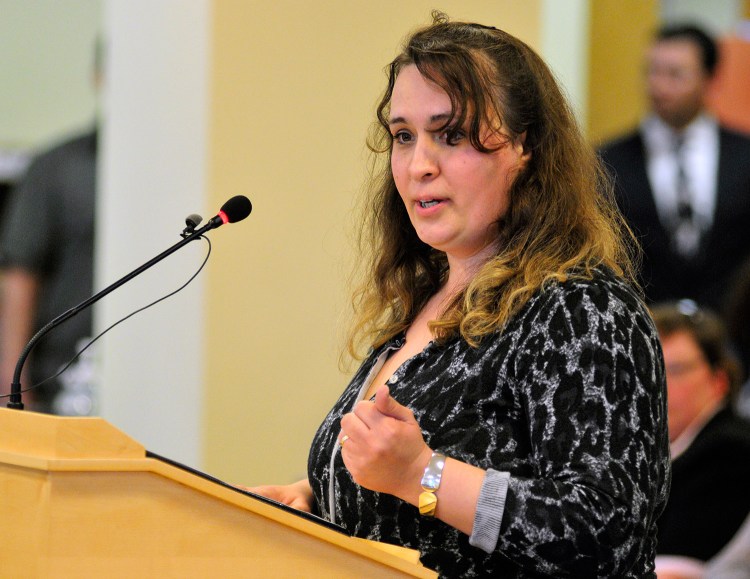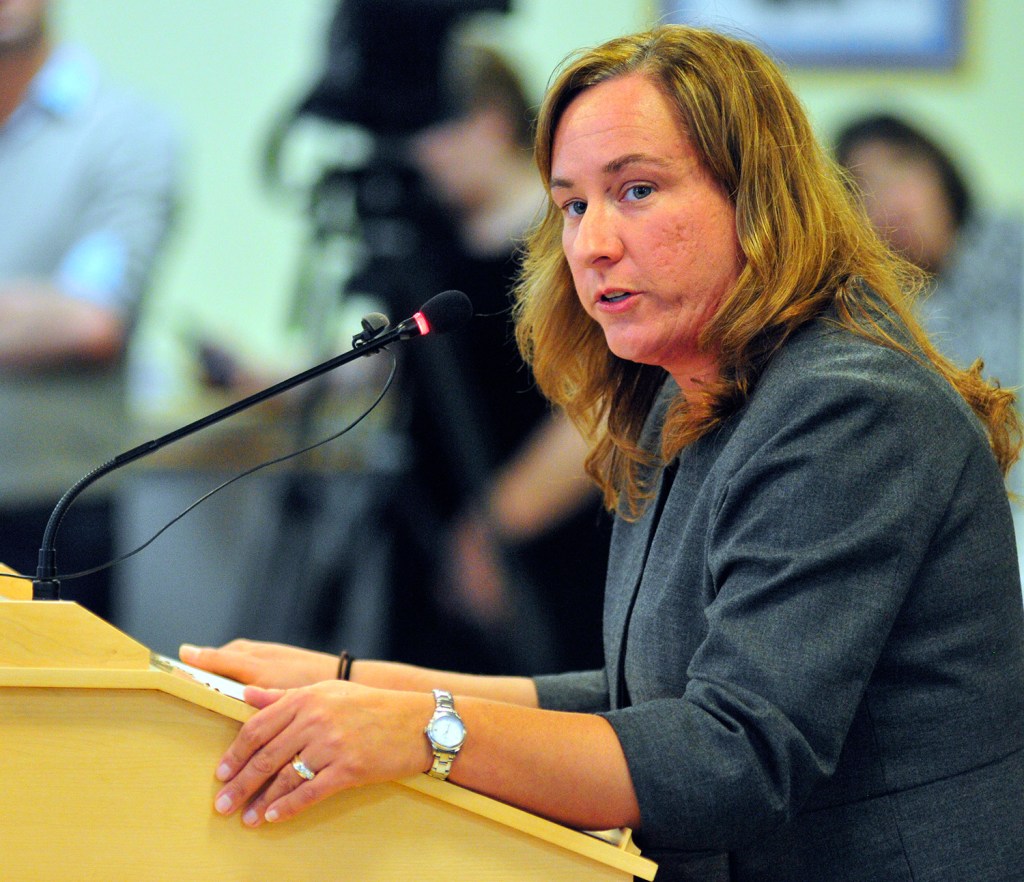AUGUSTA — Hundreds of people gathered at the State House on Friday to urge lawmakers to halt potential changes to assistance programs for some mentally ill patients.
“For me to lose these services would be devastating,” Hampden resident Eric McVay told lawmakers reviewing the LePage administration’s planned revisions to MaineCare eligibility rules.
The changes would affect thousands of MaineCare clients with chronic mental illnesses currently assigned to case managers who help them with everything from transportation to grocery shopping to dressing and staying on top of their medications.
New rules due to take effect April 8, however, would restrict those “community support services” to patients with schizophrenia disorders or who meet key criteria.
Maine Department of Health and Human Services officials said the changes are necessary to better target such “high-intensity services” to patients with serious and persistent mental illnesses. Patients with less intensive needs would be redirected toward other MaineCare programs more appropriate to their needs.
“As we have stated time and time again, we are committed to ensuring that the right services are provided at the right time and in the right setting,” said Stephanie Nadeau, director of MaineCare Services, which is the state’s Medicaid program. “This change is not about reducing wait lists as much as it is about ensuring … that these individuals are able to appropriately and timely access these supports and not experience lengthy delays.”
But more than 100 people – including past and present clients – signed up to testify against changes they warned could lead to more hospitalizations, suicides or incarcerations of people who need an active, helping hand.
“This is not a political issue, but it is a people issue,” said Donna Deigan, a Brunswick resident who has received support for post-traumatic stress disorder, depression and severe anxiety. “Mental health services are a bridge to the community. All mental health clients deserve that bridge.”
The policy in question – known as Section 17 of the MaineCare rulebook – provides assistance to clients often in their homes. According to DHHS officials, the number of clients receiving services for depression, PTSD and anxiety have ballooned by 50 percent in five years. That has led to a wait list of more than 300 people.
DHHS wants to limit the Section 17 support services to individuals with schizophrenia disorders. But the proposal would allow continued services for patients who have received treatment at a psychiatric hospital within the past two years or who doctors attest are at risk of homelessness, hospitalization, residential treatment or committing a crime because they lack assistance.
The department is implementing the revisions as “routine technical” rule changes. But opponents petitioned the Legislature’s Health and Human Services Committee to exercise its right to hold a public hearing on the issue and potentially recommend changes.
More than 300 people attended Friday’s hours-long hearing, forcing State House staff to open up at least four “overflow” committee rooms to accommodate the crowd.
Among them was Tiffany Murchison of Bath, who developed PTSD and agoraphobia over her fears of passing out in public after several hospitalizations in the intensive care unit for cardiac problems. Murchison credited her case managers with helping her overcome her disorder and going on to become a business owner and mother who no longer needs support services.
“Under the proposed changes, I would never have been eligible for the services that saved my life and helped me be the wife and mother that my family needed,” Murchison said.
Nadeau, the MaineCare director, assured lawmakers – and the crowd – that no one will be “thrown out on the streets as some would lead you to believe.” That’s because there are other MaineCare services available to those with mental health disorders, she said. Also, the department will continue to provide services to those no longer eligible until the end of their 90-day review period, and individuals can appeal denials to the department.
Despite those assurances, the changes are having immediate effects on some MaineCare clients.
This week, Merrymeeting Behavioral Health Services in Brunswick, which provides case managers to MaineCare clients, announced that it was closing its doors on April 8 in response to the changes to Section 17 of the MaineCare code. The decision affected 180 employees and an unknown number of clients.
On Friday afternoon, Mary Beth Freeman, a mental health rehabilitation technician for Merrymeeting Behavioral, said she was told by her supervisor that the agency was closing immediately because of the Section 17 changes and that clients will be left without services starting next week.
Merrymeeting’s closure was a frequent topic during Friday’s public hearing, as was the wording of the letter that DHHS sent to Section 17 clients notifying them of the pending eligibility changes.
Speakers said the official tone of the letter and lack of explanations gave the impression that people who don’t have schizophrenia or schizoaffective disorder would lose services starting April 8. They also pointed out that the letters didn’t explain the other options available to clients.
Lori Lynn Blodgett of Rumford testified that she has friends who were so frightened and stressed by the letter that it sent them spiraling, with at least one ending up in a psychiatric hospital. Blodgett credited the Section 17 services with saving her life because she was suicidal, and that the support services helped her to the point that she no longer needs them.
Case managers under Section 17 now help her elderly mother.
“Today I’m in a different place and I’m not using those programs anymore, but I am concerned about some of the people that got this letter from MaineCare, my mother being one of them,” Blodgett said. “We didn’t have all of this information today … and from my limited understanding, it sounded like she was going to lose everything.”
Rep. Deborah Sanderson, R-Chelsea, agreed that the letter’s official and clinical language did sound “quite scary,” but that the department is required to notify clients about the changes.
“I would think for someone who really suffers from mental illness it was very frightening,” Sanderson said. “I wish it could have been worded a little differently.”
Send questions/comments to the editors.





